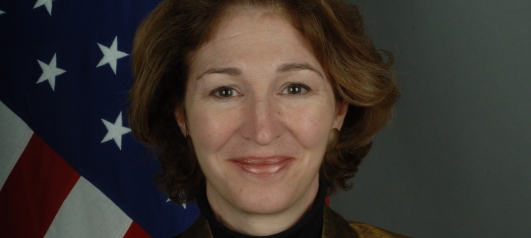
State Department Policy Planning Director Anne-Marie Slaughter argues that the United States much fundamentally restructure its foreign policy making apparatus in order to effectively engage the challenges of the 21st century. While consensus exists, however, funding has not followed.
Coming off the first Quadrennial Diplomacy and Development Review, which Slaughter led, there is a census among America’s top military, diplomatic, and development leaders that the United States must take a more integrated approach to these issues. Indeed, Defense Secretary Robert Gates and Joint Chiefs Chairman Mike Mullen have been the leading advocates of reinvigorating the roles of the State Department and the US Agency for International Development in this process, arguing that the expertise contained on the civilian side is simply vital to the types of missions that have engaged the United States over the last two decades and appear likely to continue for decades to come.
Speaking at an invitation-only policy roundtable hosted and moderated by the New America Foundation’s Steve Clemons and Talking Points Memo’s Josh Marshall (video of which can be seen here), Slaughter contended that civilian power — across the entirety of the government, not just State and USAID — must be "the first face of American power." This will not compete with the military’s role — the budget and manpower differences guarantee that — but rather be part of a whole-of-government approach to global security.
All agree that the focus should be in heading off problems in the world’s hot spots before they fester into shooting wars. Development must therefore take on a more elevated role, becoming a "central pillar" of American foreign policy on par with defense and diplomacy. This must be "bottom up," with small teams of experts stationed in countries and "circuit riding" in regions to develop understanding and strong working relationships with local officials on a routine basis. Rather than development being something done after a crisis erupts, it should instead be an ongoing, permanent process designed to prevent catastrophe from erupting. Some of this is already being done. In both Sudan and Yemen, America is working to prevent conflict with teams of experts working with host nation leaders.
Despite the enthusiastic support of the Defense Department leadership for all of this, Slaughter recognizes that a flood of new resources will not be forthcoming. Congress has historically not been generous with funding for diplomacy and development and the current pressures for budget austerity will exacerbate that trend. Thankfully, something like "60 percent of these changes are implementable without new resources." Further, since the shifting of responsibilities will be done in cooperation with Defense rather than in competition, we’ll likely see a pooling of existing resources, with civilian development agencies drawing from the broader national security budget.
Given the QDDR’s focus on a whole-of-government approach, in which State, AID, and Defense will not only work together on missions but actually pool resources, I asked Slaughter if we shouldn’t look at a Goldwater-Nichols model, in which mid- and senior-level personnel are actually required to serve in other agencies as part of their career progression. She is enthusiastic about the idea, and says that there have already been small steps taken in that direction. Secretary of State Hillary Clinton has already said that promotions will be tied to interagency knowledge and assignment history. But the logistics will have to be worked out, most notably the issue of a "training float." Because State and AID are so much smaller than Defense, they’re not staffed to backfill officers who are on assignment elsewhere.
My grad school mentor, Don Snow, taught me that "policy is what gets funded." In that sense, the QDDR’s goal of "Leading Through Civilian Power" is not yet policy but aspiration. The fact of the matter is that the State and AID budgets remain, as Clemons aptly put it, "a rounding error" in relation to the Defense budget. Which means that, unless the Pentagon continues to be led by men sharing Gates’ and Mullens’ vision of the interagency relationship, the civilians will always be under-resourced.
Then again, we should remember that it took nearly two decades for Goldwater-Nichols’ effects to filter through the military establishment and make "jointness" a reality, not just a buzzword. It could take longer than that to see the results of this QDDR even if the current consensus gels.
James Joyner is managing editor of the Atlantic Council.
Image: anne-marie-slaughter-state.jpg
